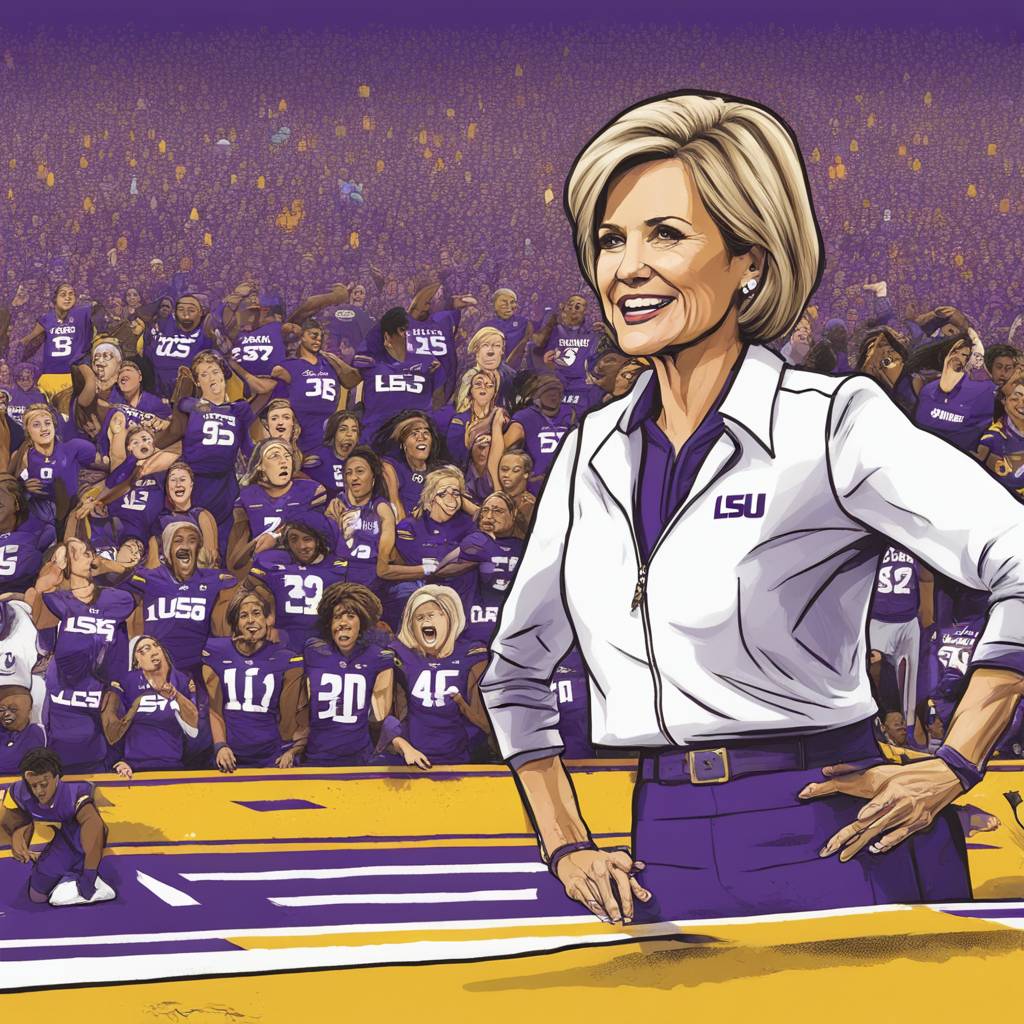After LSU women’s basketball coach Kim Mulkey criticized the Los Angeles Times for a column that she deemed sexist, the newspaper made significant updates to the article. The column had originally referred to the upcoming game between LSU and UCLA as a battle of “good vs. evil,” with Mulkey taking issue with the description of her team as “dirty debutantes.” The coach expressed her outrage during a postgame press conference, emphasizing that such derogatory language was unwarranted when referring to her players. Following Mulkey’s comments, the LA Times removed phrases like “villains” for LSU and “milk and cookies” and “America’s sweethearts” for UCLA, acknowledging that the original content did not meet their editorial standards.
Despite the alterations made to the column, Mulkey indicated that she had not received an apology from the LA Times and noted that she did not expect one. She reiterated her stance as a mother and grandmother who leads young people, emphasizing the importance of not allowing disrespectful language toward her players. Mulkey’s assertiveness in addressing the issue led to the revisions in the article, with the offensive language being removed. UCLA coach Cori Close also issued an apology for inadvertently sharing the link to the controversial column, expressing regret for not vetting the content before posting it and highlighting her commitment to fostering a positive environment in the basketball community.
In the game that followed the controversy, LSU emerged victorious over UCLA with a 78-69 win, securing their spot in the Elite Eight matchup against top-seeded Iowa. The outcome of the game highlighted the prowess of Mulkey’s team, further emphasizing the need for respectful and fair treatment of all players in the competition. Mulkey’s vocal stance against the sexist language used in the column underscored her dedication to defending her players and ensuring that they are not subjected to derogatory or demeaning portrayals in the media. The changes made by the LA Times reflect a recognition of the need to uphold editorial standards and avoid perpetuating harmful stereotypes in their coverage of women’s basketball.
As the controversy surrounding the LA Times column unfolded, Mulkey’s impassioned response drew attention to the importance of respectful and equitable representation of female athletes in the media. By challenging the derogatory language used to describe her team, Mulkey set a precedent for holding media outlets accountable for their portrayals of women’s sports. The incident served as a reminder of the ongoing challenges faced by female athletes in combatting stereotypes and discrimination, while also highlighting the power of advocacy in effecting positive change within the sports industry. Overall, the resolution to the controversy underscored the need for increased awareness and sensitivity in media coverage of women’s sports, emphasizing the importance of promoting inclusivity and respect for all athletes, regardless of gender.








